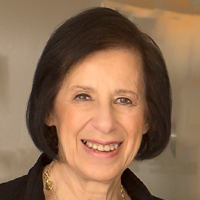
“Is dementia contagious?” a client recently asked me. This may seem a stretch to question a financial advisor about, yet it wasn’t surprising.
In recent months, multiple clients have told me they’re afraid of getting dementia because they haven’t been able to readily recall a certain word or phrase. Of course, elderly forgetfulness doesn’t necessarily indicate dementia, but it still is very worrisome to some people. They fear they might develop dementia because a relative or a friend has it. They worry they will never live to enjoy retirement, so they think, “Why plan for it?”
More pressing from a financial sense are the questions clients ask about taking care of a spouse who has been diagnosed with early-stage dementia. There are so many choices: home care, residential-facility care, hiring aides, relying on nurses or nursing assistants, or turning to family members who may or may not be paid.
It does seem to me that these concerns fall under the category of an emergency fund and I encourage all clients to start one sooner rather than later. (Many clients choose to have long-term-care insurance and others do not – it’s a tough, expensive choice.)
How Can FAs Help?
Some might view these queries as more appropriate for physicians, but they pertain to us, too, as financial advisors.
When my clients ask about planning their finances for the possibility that they or their loved ones need care, I listen and take their concerns seriously. In all cases, I also respond with my own questions. As advisors, we can probe further by asking clients:
- Do you have a will? It’s best to begin that process while they are mentally sound, and not wait too long. I always ask clients if they have an attorney they are comfortable with or if they need a referral.
- Do you have a person you would like to act as power of attorney? I encourage them to think of an appropriate person in their network, one who knows their preferred lifestyle and who is reliable, and to then ask that person if they are willing to accept that assignment. One of my clients has been thinking for years about asking her sister to be her power of attorney but has yet to raise the topic in their weekly calls.
- How will you pay for medical care, if it is needed? Does your client have a long-term care insurance policy? Are they eligible for Medicare or Medicaid? Do they plan to self-insure, if and when the need arises?
- Do you have a personal physician you could turn to for advice and guidance if you or a loved one develops dementia? Many clients (and some family members) are in denial, so getting them to a doctor who can diagnose their condition can be a problem.
- Are relatives aware of your concerns? It’s usually best to loop in family members, rather than try to handle events by themselves.
All these questions can spur more thoughtful discussions and can lead us to dig deeper into a client’s plans.
Better to Be Prepared
Of course, some of these worried clients might not develop dementia or its debilitating side effects. Some will get lucky and others won’t live long enough. Dementia (including Alzheimer’s, one of its many forms) is typically a disease of the elderly. A recent New York Times article discussed a simple blood test that may soon be available to detect Alzheimer’s even in individuals who don’t exhibit symptoms. But due to high death rates for those advanced in age, many people would likely die before developing symptoms, the article noted.
Yet, as a result of how frequently I’m being asked about dementia, it has become part of my conversation with many clients. I recently asked a dementia educator and consultant to answer questions beyond my areas of expertise.
A Caregiver’s Journey
I invited Claire Webster, a former caregiver, to address client concerns in a recent webinar. Claire is a Certified Alzheimer Care Consultant, the creator of the McGill University Dementia Education Program (in Montreal) and the founder of the consulting firm Caregiver Crosswalk Inc.
She began her talk for our clients by sharing her own experiences: When Claire’s three children were young, her mother developed Alzheimer’s and she became her caretaker. Claire had to find a way to establish the best environment for her mother. What shocked me was that when she took her mother to a physician for testing, the physician told them, yes, her mother had dementia — and then he simply wished Claire good luck.
Lacking knowledge, Claire was left alone in the wilderness of eldercare with a loved one suffering an incurable disease. It was a very difficult journey, and after her long struggle she sought to help others the way she wished she had been helped.
One of our webinar attendees, a doctor, wrote in to say that while he often dealt with Alzheimer’s patients himself, he had never given much thought to their caregivers. He thanked our firm for bringing the caregivers’ story to light. His excitement at the substance of this webinar was powerful.
How Caregiver Clients Can Help
As an Alzheimer Care Consultant, Claire shared these suggestions that could aid your clients who are assisting a family member with dementia:
- Maintain a calm and patient demeanor.
- Offer reassurance and support.
- Encourage positive behaviors and accomplishments rather than focusing on memory lapses.
- If you notice persistent or worsening memory issues, encourage the individual to consult with a healthcare professional.
- Offer gentle reminders when appropriate.
- Encourage the person to stay connected with friends, family and community activities.
Because of the good work of healthcare professionals, there have been advances in tools, earlier diagnosis and improved treatment for people living with dementia. All this may mean that most people, including your clients, won’t face as many of the same difficulties.
Advice for Caregivers
Claire also discussed with me important factors concerning the care of a loved one that could be relevant for you to share with your affected clients. Some of them come from Chapter 16 of the World Alzheimer Report 2021, published by the nonprofit Alzheimer’s Disease International. Claire authored this chapter. The suggestions:
- Stay on top of recent education about the course and treatment of the disease. Read all the material you can; talk to medical professionals about your concerns.
- Increase your knowledge about the field. Keep up with changes and the experiences of others who have been through something similar.
- Show patience with your loved one. Don’t argue with their view of life. Doing so might upset them, while accepting their viewpoint confirms their version of reality.
- Stay up-to-date on any support services available to your family. Arrange transportation and appointments as needed.
- Remember to advocate for your loved one. See that they have proper care and access to senior services. Patients who have an advocate tend to receive more attention to their needs.
- As a caregiver, don’t fail to take care of yourself as well. Maintain a healthy diet, an exercise routine, friendships and well-being. Try to be positive but set boundaries, even when that means saying “no” to some requests. Be sure to allow some things you enjoy into the mix.
- Call your friends and relatives as needed. Sharing responsibility for your loved one will lessen the stress you feel.
Having a close friend or relative with Alzheimer’s can and likely will affect clients’ entire families. While there is no known cure, there is increasingly better treatment and care, as well as improved understanding of the needs of a client’s loved one. Beyond assisting with the relevant financial details, advisors can find a number of ways to help ease clients’ burdens brought on by dementia that may take some of the edge off their difficult experience.
Karen Caplan Altfest, PhD, CFP®, is a principal advisor at Altfest Personal Wealth Management. She helps many of the firm’s clients with a variety of investment and financial planning issues and specializes in helping women clients and widows. Karen’s Financially Savvy Woman programs, including the Women’s Financial $pa,TM, are popular with clients. Her focus is to educate and empower women.







